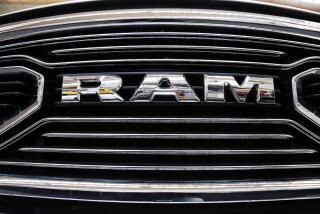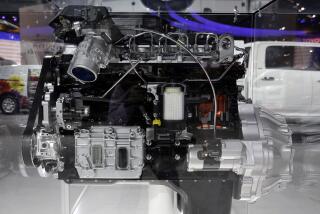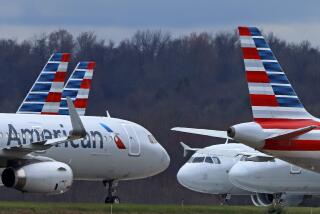Mercedes Pays $20-Million Fine for Failure on Fuel Economy
WASHINGTON — Mercedes-Benz has paid a record $20.2-million fine because its 1986 cars guzzled too much gasoline, the National Highway Traffic Safety Administration said Friday.
The West German luxury auto maker was fined because the 86,020 cars it sold in the United States in the 1986 model year fell 4.7 miles per gallon short of meeting that year’s required fleet average minimum mileage, 26.0 m.p.g., under the corporate average fuel economy standard, said Tim Hurd, spokesman for the agency.
The law requires a fine of $5 for every tenth of a mile per gallon that the standard is missed--$235 a car in this case--times the number of cars sold.
Manufacturers may apply credits earned by doing better than the minimum in other years, but Mercedes exhausted all its credits in the 1985 model year.
10 Days to Appeal
“This is the largest payment for civil penalties for failure to comply with CAFE standards,” Hurd said.
In addition, Hurd said an administrative law judge rejected the auto maker’s appeal on a $5.5-million fine previously imposed for failing to comply with standards on its 1985 models, when the company’s U.S. fleet averaged 23.6 m.p.g. and the requirement was 27.5 m.p.g. Without credits, the 1985 fine would be nearly $18 million, Hurd said.
Mercedes has 10 days to appeal the proposed 1985 fine, Hurd said.
The increasingly higher average mileage standards a company must meet are required under the Energy Policy and Conservation Act, approved by Congress in 1975. The standards were first applied to the 1978 model cars, Hurd said.
The largest fine previously paid was $8.8 million by Jaguar for not meeting the mileage goals on its 1985 models, Hurd said. Jaguar also had been fined $6 million for exceeding the standards on its 1984 models.
There was no answer Friday at the Montvale, N.J., offices of the company’s U.S subsidiary, and no one at the Washington office of its lawyers could answer questions.
In addition to the fleet average requirement, cars sold in the United States also are taxed if they fail to meet a different minimum standard.
The current fleet average requirement is 26.5 m.p.g., and NHTSA is considering where to set the benchmark for cars that go on sale next fall for the 1990 model year.
In a letter, the company said it reserved the right to appeal the decision and “challenge the model year CAFE 1986 standards, or their application to Mercedes-Benz North America.”






